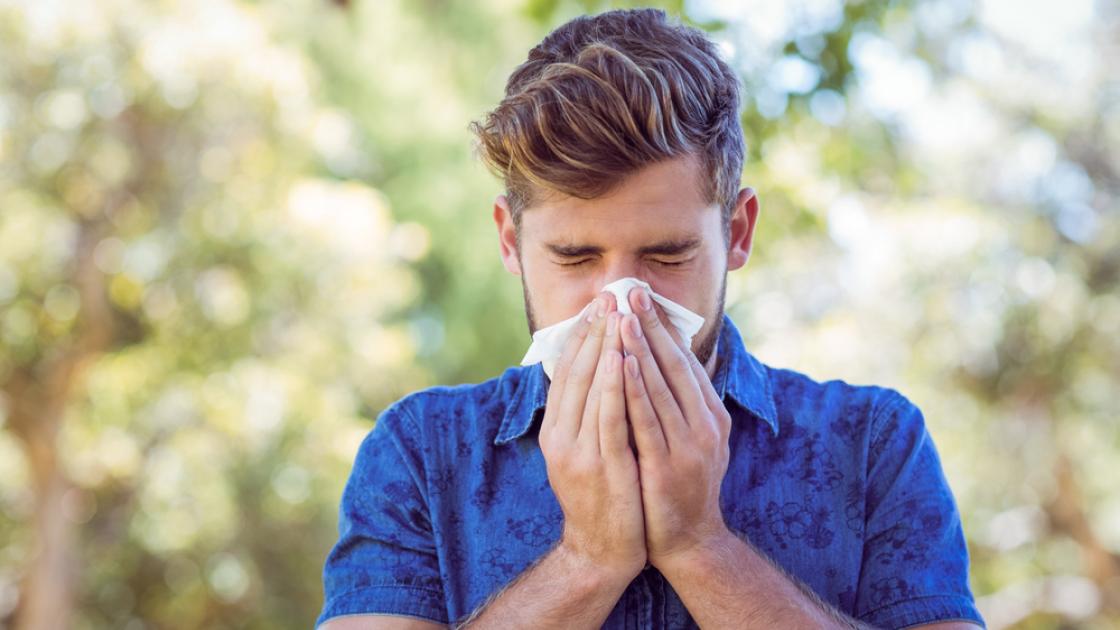
Living with late summer and early fall allergies: Ways to manage your symptoms
When you hear the term "seasonal allergies," it's natural to think about springtime, which is when allergy symptoms start to ramp up for a lot of people. But for some of the 1 in 4 adults and 1 in 5 kids living with seasonal allergies in the United States, "allergy season" can actually include late summer and even early fall.
If you or a loved one struggles with hallmark symptoms of summer or fall allergies—sneezing, coughing, watery eyes and runny noses—it's helpful to know what's triggering the symptoms and how to manage them. Keep reading to learn more.
Ragweed and other common triggers of late summer and early fall allergies
According to the American College of Asthma, Allergy & Immunology (ACAAI), one of the most common triggers of late summer allergies is ragweed. Ragweed is a flowering plant that grows all over the United States and is especially prevalent in the Midwest. While this flowering plant blooms from August through November, ragweed pollen levels are thought to be highest in the first half of September.
Interestingly, ragweed pollen levels also tend to surge when the days are still warm but the nights are cool—a common weather pattern seen in most parts of the United States during the late summer season. This change in weather has a similar effect on the pollen counts of many common grasses and trees, as well.
Other plants that can trigger late summer and fall allergies include burning bush, cocklebur, sagebrush, tumbleweed and mugwort.
In addition to weeds, grasses and trees, other things that trigger summertime allergies include:
- Seasonal fruits and veggies. Some people with allergies to ragweed or grass can also develop mild allergic reactions to certain raw vegetables and fruits. Called Pollen Food Allergy Syndrome (PFAS) or Oral Allergy Syndrome (OAS), this condition can cause symptoms like an itchy throat and swelling of the lips and mouth after eating late summer produce like bell peppers, peaches, tomatoes and zucchini.
- Mold. Mold spores thrive in heat and high humidity, which can persist well into late summer and early fall in many parts of the United States.
- Insect bites and stings. Localized redness, itchiness, pain and swelling are common after an insect bite or sting (especially from honeybees, hornets, wasps, yellow jackets and fire ants). In a small percentage of kids and adults, however, a life-threatening allergic reaction called anaphylaxis can develop.
Is it a summer allergy or a summer cold?
Sometimes it's hard to tell the difference between a cold or allergies, especially in the summertime. After all, both can cause symptoms like itchy and watery eyes, sneezing, coughing, runny nose and nasal congestion.
While only a doctor can give a specific diagnosis, you should know that cold symptoms usually last no more than two weeks, while allergy symptoms can last for as long as you're exposed to your trigger. Plus, allergies don't usually present with fever, while colds often do.
Five ways to manage your late summer allergy symptoms
Seasonal allergies can have a negative impact on your quality of life. If you're hoping to enjoy the end of your summer vacation and feel more comfortable once autumn hits, these five strategies should help:
- When pollen counts are highest, stay inside and close your windows. Check out the National Allergy Bureau for up-to-date pollen levels in your area. Keep in mind that pollen counts tend to surge after rain and on warm windy days, according to the ACAAI.
- When you do go outside, limit your exposure to allergens by wearing a mask and light, long-sleeved clothing. Avoid touching your face.
- Wash your hands and consider changing your clothes after spending time outdoors, especially if you've been doing yard work or other activities that increase your exposure.
- Shower at night before bed to remove pollen and other allergens from your hair and skin.
- Consult with an allergist. Working with a doctor who specializes in allergy care can help you get the customized treatment you need for optimal relief.
Do you struggle with seasonal allergies?
You don't have to suffer from allergies this summer and fall. Find a doctor at SIU Medicine today if you need help managing your seasonal allergy symptoms.




